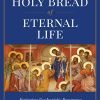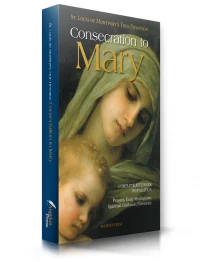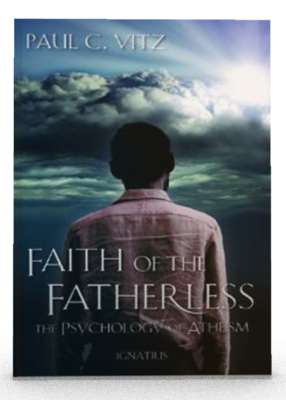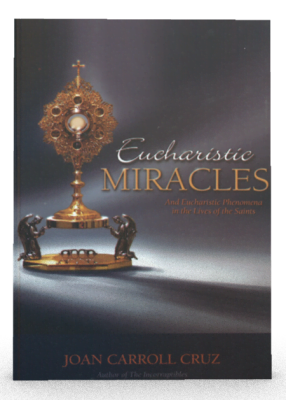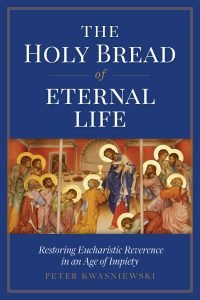By: Peter Kwasniewski
Recent decades have been marred by pervasive Eucharistic abuse, from violations of liturgical norms and rubrics to practices that encourage irreverence and facilitate habitual sacrilege. The coronavirus crisis in 2020 has occasioned a further wave of sacramental manipulation, desacralization, and deprivation that has left almost no Catholic in the world unharmed.
These disturbing “signs of the times” call for an unsparing reassessment of official and unofficial policies, practices, customs, and attitudes, along with fresh appreciation for “creative minorities” that are taking a different, more difficult, and more successful path to reverence.
The Holy Bread of Eternal Life is a powerful and timely book by scholar Peter Kwasniewski that exalts the divine gift of the Blessed Sacrament, which can never be too much adored, too much loved, too much cared for, or too much sacrificed for.
Drawing on both Testaments, the Fathers of the Church, St. Thomas Aquinas, and the Magisterium, Kwasniewski describes the fitting veneration and handling of this “mystery of faith” past and present, the dispositions we need to cultivate for a fruitful reception of the Lord, and the blessings that follow from a life centered on Holy Communion. At the same time, the book critiques many novelties in modern Catholic worship and shows why they must be set aside for the health of souls and the Church.
There is far more at stake in today’s debates concerning Holy Communion than what preferences should be indulged or slip-ups tolerated. At stake is whether we truly believe in Jesus Christ, our God, our Savior, our Friend, and our Judge, really present in the Eucharist; whether we acknowledge and accept His lordship over us in every aspect of what we do and say; and whether we will act, react, worship, and pray in a manner consistent with true belief.


